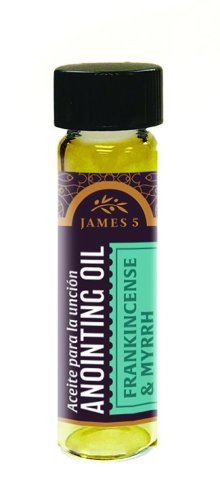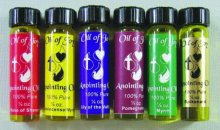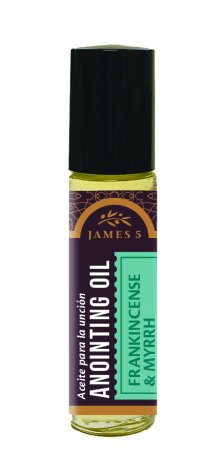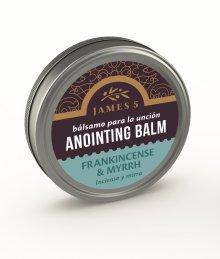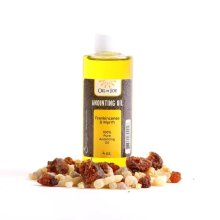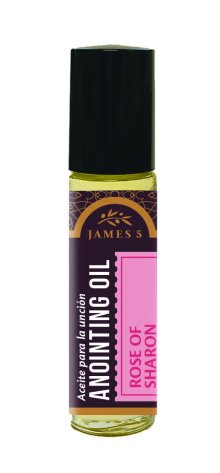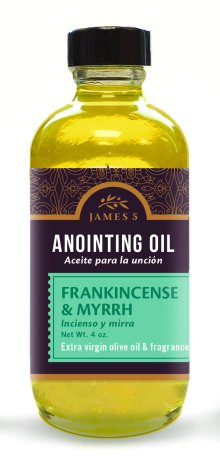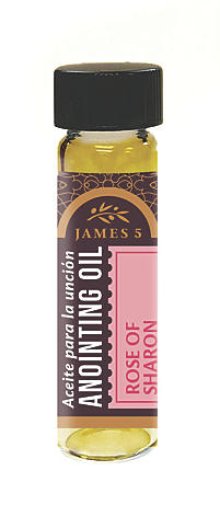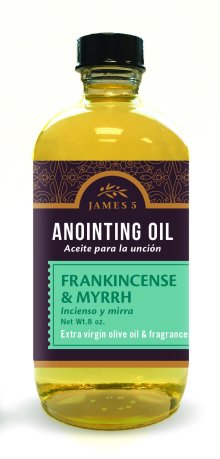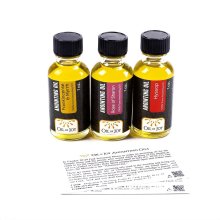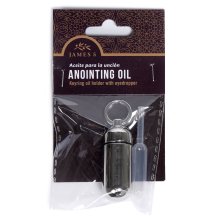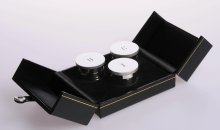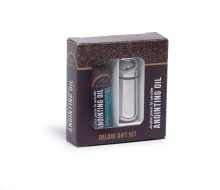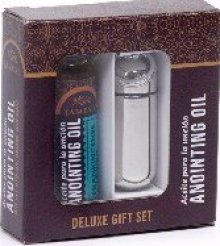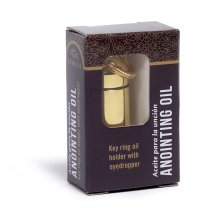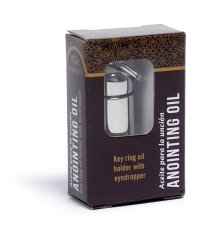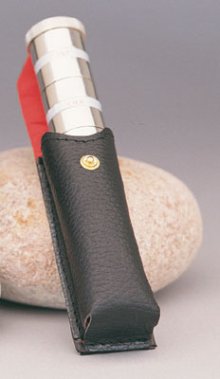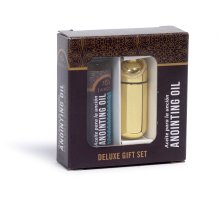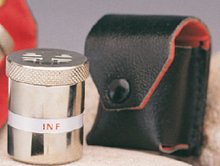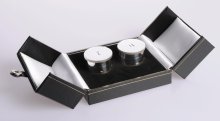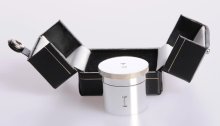Anointing Oil: A Definitive Guide to Its Biblical Roots and Modern Practice
Denise Jeremy - Eden Church Supplies Specialist

Anointing oil has deep biblical roots and continues to play a vital role in Christian healing, consecration, and spiritual warfare today.
From the sacred rituals of the Old Testament to the healing practices of the New Testament church, anointing oil has long held a place of reverence in Christian tradition. Today, it remains a powerful symbol and tool in the lives of believers, used in prayer, healing, and spiritual warfare. In this guide, we’ll explore the biblical origins of anointing oil, its theological significance, and how it’s used in modern Christian practice.
📖 The Biblical Origins of Anointing Oil
Old Testament Foundations
Anointing oil first appears in the Old Testament as a holy substance set apart for sacred use. In Exodus 30:22–33, God gives Moses a specific recipe for holy anointing oil, composed of:
- Myrrh
- Cinnamon
- Calamus
- Cassia
- Olive oil
This oil was used to consecrate the Tabernacle, the Ark of the Covenant, and the priests. It symbolized holiness, divine appointment, and the presence of God.
“You shall consecrate them so they will be most holy, and whatever touches them will be holy.” — Exodus 30:29
Kings and prophets were also anointed with oil as a sign of God’s calling and empowerment (1 Samuel 16:13, 1 Kings 19:16).
New Testament Continuation
In the New Testament, anointing oil continues to be used, but with a broader spiritual application. Jesus’ disciples anointed the sick with oil and healed them (Mark 6:13). James 5:14 instructs believers:
“Is anyone among you sick? Let them call the elders of the church to pray over them and anoint them with oil in the name of the Lord.”
Here, anointing oil is associated with healing, prayer, and faith, rather than ritual consecration.
✝️ Theological Significance
Anointing oil represents:
- The Holy Spirit – Oil is often a symbol of the Spirit’s presence and power.
- Healing and Restoration – As seen in James 5:14–15.
- Consecration and Calling – Used to set apart people or objects for God’s purposes.
- Spiritual Authority – Anointing often accompanies divine commissioning.
Some theologians emphasize the symbolic nature of oil, while others believe it carries spiritual power when used in faith. Both views agree that the oil itself is not magical—it is God who heals and empowers.
🛐 Modern Uses of Anointing Oil
Today, anointing oil is used in a variety of Christian traditions and settings:
1. Healing and Prayer Ministry
Many churches and individuals use anointing oil during prayer for the sick, following the instruction in James 5. It’s often applied to the forehead while praying for healing, peace, or deliverance.
Popular choices include:
- Frankincense & Myrrh Anointing Oil
- Spikenard Oil
- Rose of Sharon Oil
2. Spiritual Warfare
Some believers use anointing oil to symbolically claim their homes, families, or spaces for Christ. This practice is rooted in the belief that anointing can serve as a physical act of spiritual protection.
You can also find spiritual warfare books and resources to guide your prayers and understanding.
3. Consecration of People and Objects
Pastors, missionaries, and ministry leaders may be anointed during commissioning services. Some also anoint church furnishings, crosses, or reliquaries as part of dedication ceremonies.
🫙 Vessels for Anointing Oil
To store and carry anointing oil reverently, many believers use specially designed vessels. These range from simple glass bottles to ornate containers that reflect the sacredness of the oil.
Explore these options:
- Anointing Oil Bottles – Ideal for personal or church use.
- Holy Oil Vessels – Often used in liturgical settings.
- Travel-Friendly Oil Holders – Perfect for ministry on the go.
These vessels help maintain the oil’s purity and make it easier to use during prayer or ministry.
⚖️ Addressing Theological Debates
There are differing views within the Christian community about the use of anointing oil:
- Sacramental View: Some traditions (like Catholicism and Orthodoxy) treat anointing oil as a sacramental, believing it conveys grace when used with faith.
- Symbolic View: Many Protestant denominations see it as a meaningful symbol that accompanies prayer but does not carry power in itself.
- Caution Against Superstition: Some warn against treating oil as a magical charm, emphasizing that faith in Christ—not the oil—is what brings healing and protection.
A balanced approach recognizes the biblical precedent for using oil while keeping the focus on God’s power and presence.
🙏 Final Thoughts
Anointing oil is a beautiful and biblically grounded practice that continues to enrich the spiritual lives of believers. Whether used in healing, consecration, or spiritual warfare, it serves as a tangible reminder of God’s presence, power, and peace.
“But you have an anointing from the Holy One, and all of you know the truth.” — 1 John 2:20
You can find a wide selection of anointing oils, vessels, and church supplies at Eden to support your spiritual journey.
Latest Blogs

Bibles
NIV vs. The Message: A Guide to Translation vs. Paraphrase
Comparing the NIV Bible and The Message? Our simple guide explains the key difference between a formal translation for study and a contemporary paraphrase for reading + Get your Free 97-page Bible Buying Guide

Bibles
NASB 1995 vs. 2020: What's the Difference?
A clear guide explaining the key differences between the NASB 1995 and the updated 2020 edition, focusing on language, gender accuracy, and readability + Get your Bible Buying Guide eBook.

Bible
What is the Easiest Bible to Read & Understand? (2026 Guide)
Understand Bible translation reading levels easily. Our guide explains the reading age for NIV, NLT, ESV, KJV & more to help you choose the right Bible + Get your Free 97-page Bible Buying Guide

christian jobs
Church Jobs (Week ending 23 Jan)
There is a unique heartbeat that pulses beneath the surface of Christian ministry—a rhythm of service, calling, and community. It’s the quiet conviction that the gifts God has given us are meant not just for personal success, but for the flourishing of the Kingdom.

How to Start a Prayer Journal in 2026: A Beginner’s Guide
In an age of instant notifications, AI-generated content, and digital noise, finding a moment of genuine stillness can feel like a luxury. Many of us start our mornings by scrolling through headlines or social media, only to find our peace depleted before the day has even begun.

christian jobs
This week's Christian Job opportunities (23 Jan 2026)
This week, the Eden.co.uk Job Directory is buzzing with roles that span the spectrum - from senior executive positions steering global mission strategy to hands-on community roles making a

